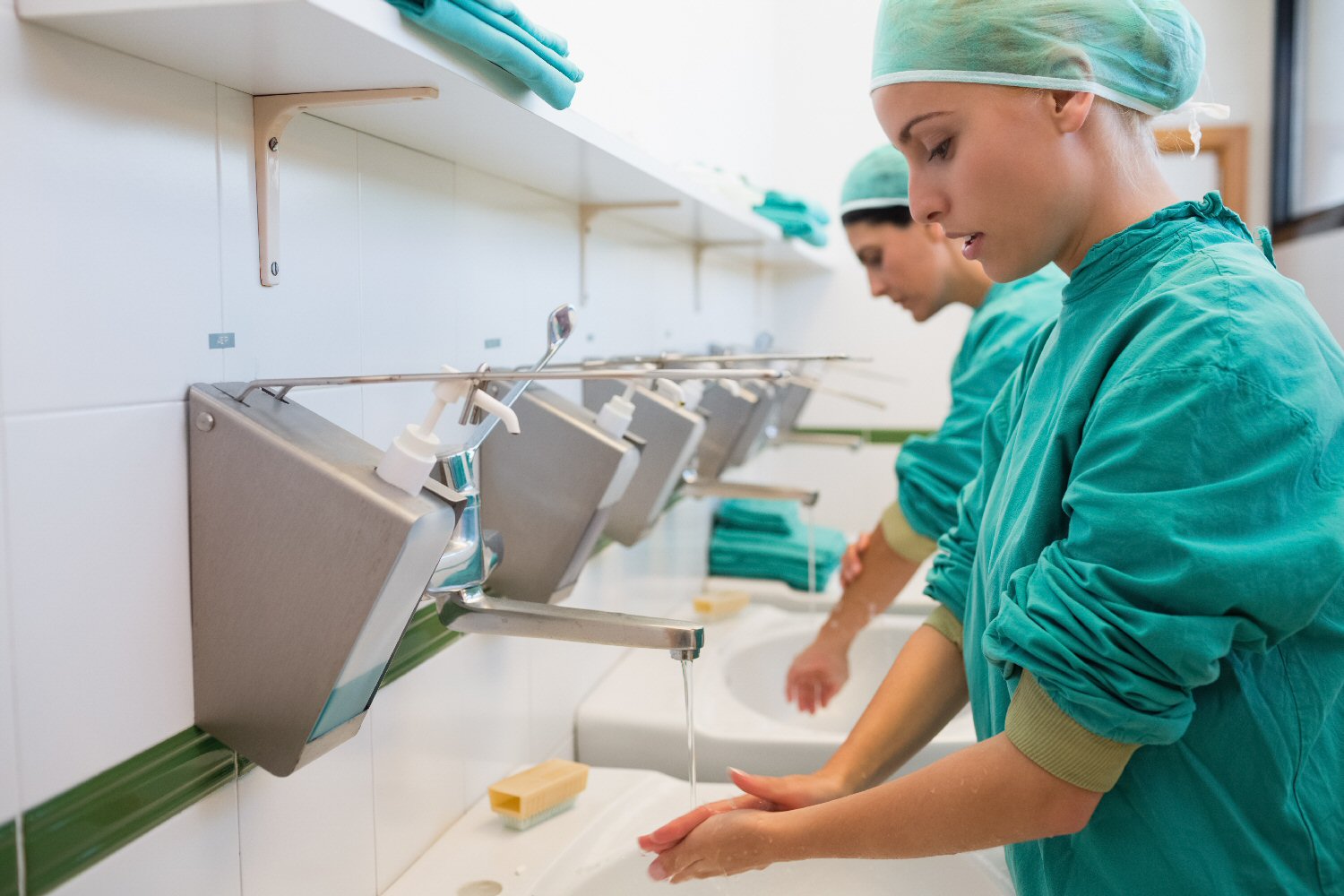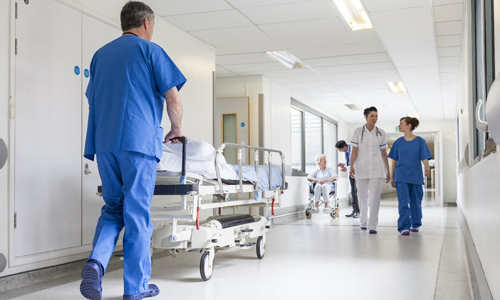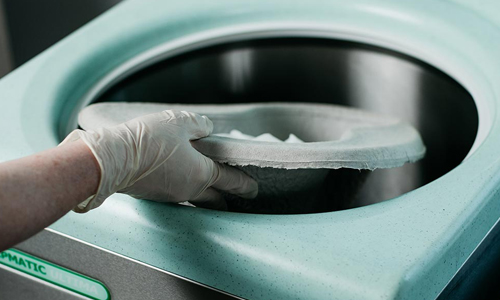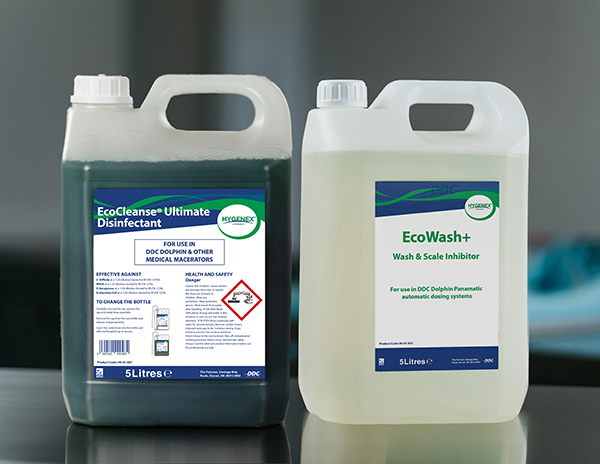How DDC Dolphin Can Help You Comply With NHS Standard Infection Control Procedures
Managing HCAIs is a major concern for healthcare providers. To help tackle this critical issue, the NHS Standard Infection Control Procedures provide a comprehensive guide for good practice. DDC Dolphin’s unique human waste disposal systems are an ideal solution to help you meet these standards and ensure that you provide the safest possible care.
Healthcare associated infections are devastating.
For patients, HCAIs range from uncomfortable to life-threatening; in England alone, they’re estimated to directly cause 5,000 deaths a year, as well as contributing to a further 15,000[1].
As a caregiver, it’s your worst-case scenario; infections can swiftly proliferate between service users, before spreading to clinicians and evoking a crisis in the facility.
Even when a harrowing sickness has been stemmed, the consequences for your facility’s budget and reputation can be felt for months – or even years – to come.
The NHS Standard Infection Control Procedures were implemented to help prevent the breakout of infections in healthcare settings.
Written specifically for health professionals, the procedures are crafted to make it easier to care for patients safely, with every clinician adhering to the same high standard; day in, day out, as a series of habits.
Adhering to the Procedures is a challenge without the right equipment.
The NHS Standard Infection Control Procedures (SICP) specify that waste should be disposed of as close to the point of care as possible, as well as in a timely manner; when you consider that patients are mostly extremely vulnerable to infection, the placement and isolation of this waste must be carefully examined.
Although disposable urine bottles, bedpans and vomit bowls could potentially be placed in a bin with UN-approved orange, yellow or ‘tiger stripe’ bags, it’s far from the best way to deal with hazardous human waste.
The bag will invariably fill up and need to be moved; a hazard in itself, when you must transport waste from one location to the next. Similarly, keeping such materials in bins is likely to be unpleasant for the patients and staff who are in close proximity – regardless of how well it’s bagged.
Emptying bins will also need to be high on the agenda of your clinicians to prevent them becoming over-packed (SICP recommends they are never more than ¾ full). Bins that are stuffed to the brim are not only disgusting, but a distinct infection risk – and that’s before you consider the time that your clinicians will need to spend emptying and replacing them.
If your facility is still washing bedpans by hand, it adds another dangerous step to the process.
Moving filled bedpans to the sluice room, followed by a process of manual hand-washing, is just as unpleasant as it sounds. It’s ineffective when it comes to infection control (the water is unlikely to be hot enough to kill bacteria), while also being a potentially long and arduous task for the clinician.
Wouldn’t they rather be providing bedside care, instead of gruelling and potentially dangerous auxiliary tasks?
A DDC Dolphin Macerator provides a hygienic and convenient solution to SICP-compliant human waste disposal.
Maceration disposes of pulp products, such as reusable bedpans, by cutting the item into fine particles and dispersing it into the regular sewerage system.
Quiet enough to be used within ward rooms (they operate at under 60 decibels, which is comparable to the sound level of normal conversation), a macerator doesn’t hold on to waste; just put the pulp container inside, start the maceration cycle, and the waste is disposed of within a matter of minutes.
You needn’t worry about nasty odours spreading to care environments, either. The macerator will automatically give the drum a rinse of refreshing disinfectant after each cycle.
Totally hands-free, a DDC Dolphin macerator or bedpan washer disinfector isn’t a hazard to hand hygiene.
Hand sanitation has a significant part to play in SICP guidelines.
Specifying not only when but how they should be washed, SICP makes it clear that dirty hands simply aren’t tolerable in a care setting. Although gloves can be helpful, they’re no substitute for soap and water, and you’ll still need to give hands a thorough scrub after most kinds of bedside patient assistance – whether you use personal protective equipment (PPE) or not.
In fact, SICP recommend 5 specific moments for hand hygiene:
- Before touching a patient
- Before clean/aseptic procedures
- After body fluid exposure/risk
- After touching a patient
- After touching patient surroundings.
In order to ensure that your clinicians don’t compromise their hand hygiene when disposing of waste, DDC Dolphin pulp macerators (and some bedpan washers) include hands-free operation, using either optical sensor technology or elbow buttons. In addition, an anti-microbial coating on the machine will provide an extra layer of protection, making it exceptionally difficult for dangerous pathogens to thrive.
As SICP recommend that waste receptacles should not be touched, it’s the ideal solution to a pressing waste management issue.
DDC Dolphin macerators and washer disinfectors help you to control your healthcare environment.
SICP advise that your work area is tidy and ‘clutter free’, to ensure that all surfaces can be thoroughly cleaned. DDC Dolphin Macerators and Washer Disinfectors are designed to optimise space, with a choice of models with compact proportions, and smooth surfaces to prevent bacterial growth and provide ease of cleaning.
If you’re building a new sluice/dirty utility room or simply upgrading the facilities in an existing one, DDC Dolphin can also provide expert planning advice, to ensure that you maximise your capacity and carefully map the location of components to the greatest effect.
A well-planned sluice room is a safe sluice room.
The future of sanitation is single-use.
It won’t be news to you that all items coming into contact with your patients should be clean. As SICP recommend single-use items in health and social care settings (or at least, wherever possible), it’s in the best interest of most medical institutions to consider pulp products for managing human waste.
Medical Pulp urine bottles, bedpans and bowls are only ever used once, before being disposed of in a pulp macerator. It’s the most hygienic approach to ridding your facility of waste, while also being more economical than you might expect.
DDC Dolphin supply a complete range of medical pulp items, to perfectly compliment your adhesion to the NHS Standard Infection Control Procedures.
Infection control should never be left to chance. Contact DDC Dolphin today and find out more about how we can help you meet the NHS Standard Infection Control Procedures.
[1] Reducing Healthcare Associated Infections in Hospitals in England, National Audit Office, 2009 (p.27)







